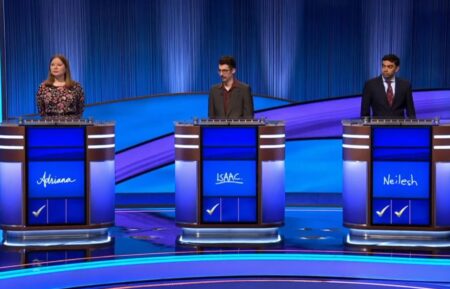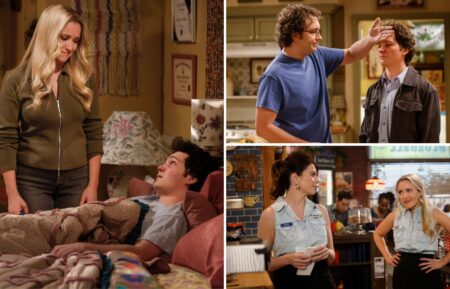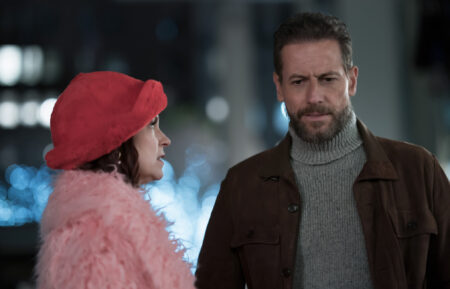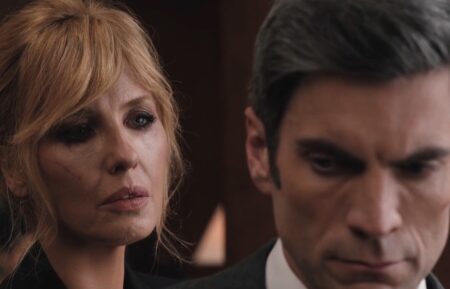‘A Very Royal Scandal’: Michael Sheen & Ruth Wilson Talk Powerful Ending
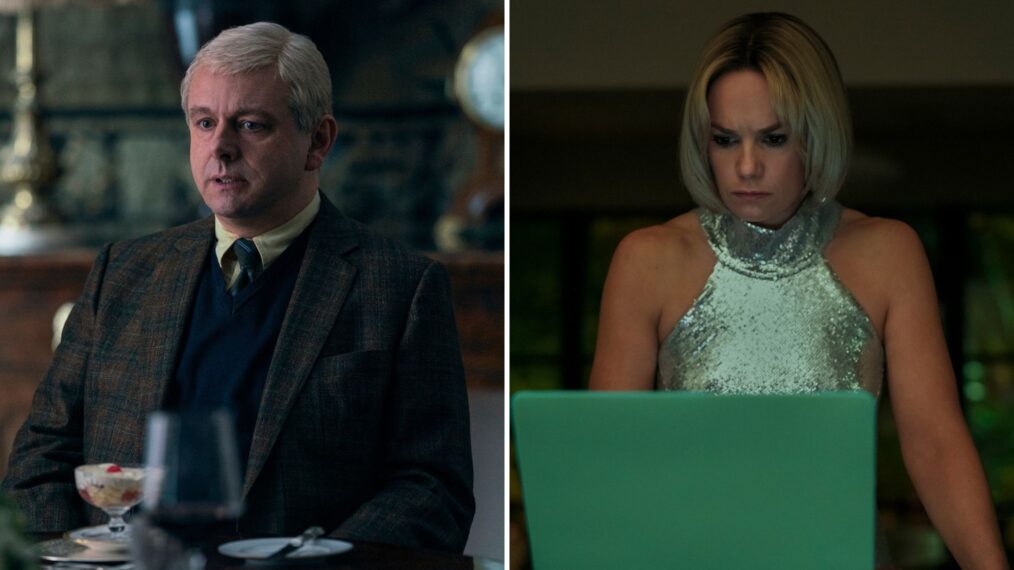
Spoiler Alert
[Warning: The below contains MAJOR spoilers for A Very Royal Scandal.]
Over three episodes, Prime Video, in A Very Royal Scandal, tells a dramatization of journalist Emily Maitlis’ (Ruth Wilson) 2019 interview with Prince Andrew (Michael Sheen) regarding his relationship with convicted sex offender Jeffrey Epstein and allegations of his own misconduct. We see 20 minutes of that hour-long conversation, with the rest of the series dedicated to what comes before and the fallout of it.
As the series—which is now streaming—ends, Emily packs up her desk, having decided to leave the BBC, while Andrew is told he must live with the consequences of his actions. As the Queen’s Jubilee plays on the TV, both are at home, and then clips from the interview replay, with Emily asking for a message to Virginia Giuffre, who accused Andrew of sexual assault, and his non-response. The last shot is the photo of Virginia in the box of Emily’s belongings at home.
It’s a powerful ending, with a message that Sheen, Wilson, and Maitlis tell TV Insider they appreciate.
“One of the things that I thought worked very well in the piece was that it seemed to reflect what actually happened in life, whereby the interview sort of became such entertainment fodder,” says Sheen, noting that everyone began talking about Pizza Express, Prince Andrew’s “not sweating and the car crash nature of it all” as well as Maitlis’ career and awards.
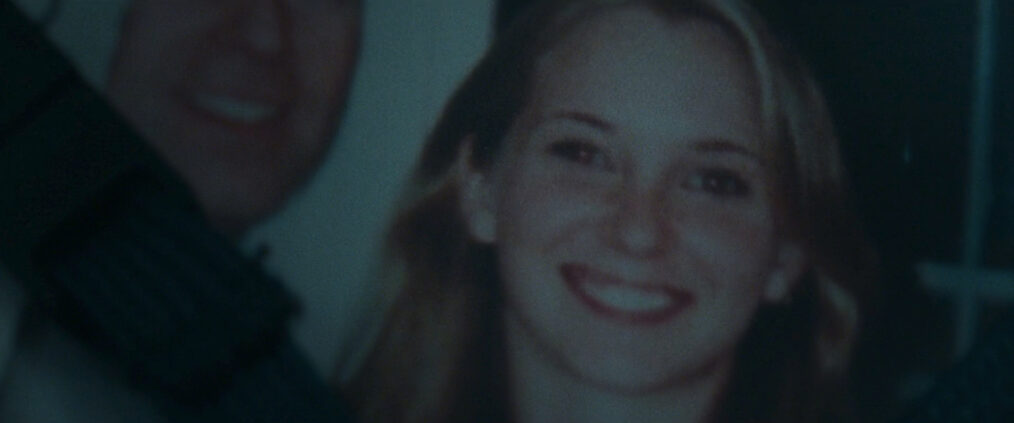
Prime Video
“What started to get lost was what it was actually about, which was these young women—this one young woman, Virginia Giuffre, in particular, but all the women in the Epstein and Maxwell case,” he continues. “I thought what our drama did very well was to allow that to happen so that you do start to forget what it’s about, and then it brings you back to what it really is about. And so the final shot being the picture of that young girl looking out at us and the very disturbing mystery of what’s behind that photograph and in that photograph, I thought, was very powerful.”
Wilson agrees. “What we were trying to reflect a bit is this is all very well and good exploring these people in power—Andrew and even Emily, Emily’s got power, too—but don’t forget what the story is really about and also who this is really serving, and have there been really any positive outcomes for Virginia or those other victims? Let’s not keep putting this under the carpet. The reason why we’ve done this drama is to draw attention to it again, draw attention to the imbalance of power and that it’s always really important to keep holding power to account,” she points out.
Maitlis loved the ending, calling it “a reminder of why we did the interview in the first place. It was about accountability. We as journalists have such an extraordinary opportunity and responsibility to hold those in power to account—and be the voice for those that don’t get to ask the questions. At the heart of the original interview were questions about power, abuse of power, and the stories of the trafficked victims of Epstein who will never get to see retribution because he died awaiting trial,” she says. “The shot of Giuffre in the packed-up box is a reminder of how it all started. And how it’s still unfinished. Not just for her, for them, but for hundreds of others who may never get a proper answer or any kind of emotional closure. It’s a reminder the work—the story—still goes on.”
Wilson also says that the ending allows for a discussion about the power of journalism. “It can hold power to account, but also sometimes it feels just like entertainment. It’s the limits of journalism.
It’s very hard to get powerful people in a position where they’re sitting being interviewed. It is very hard, and they’re so often over-PR’d these days, and it’s very hard to get any sort of truthful or direct relationship and communication and conversation going,” she adds. “So for that to happen, it was kind of extraordinary. And for him to put himself in that position is extraordinary. The responsibility of those moments is huge. You can imagine at the end that the consequences for both Andrew and Emily are great in some ways, both positive and negative, but not in comparison [to the victims].”
For Sheen, the last image of Andrew is “very strong” as well.
“Hearing Andrew’s own words saying he has nothing to say to her—when he’s given the opportunity to kind of really do a lot of damage limitation, he chooses something else. And the shot of him behind the window left as a man kind of disappearing almost, a man whose trajectory has been of getting further and further away through his life since the Falklands War and that final image of him behind the glass, almost like a ghost wearing his military outfit, that was a choice that we made, that when he’s watching the Jubilee on TV, that he’s not been allowed to attend, that he puts his military garb on anyway, just to watch it at home,” he shares. “We don’t know that that happened. That’s something we made up. But it means that that last image of him standing there, I think, is all the more powerful for the fact that he’s wearing his military outfit and like a ghost behind the window.”
What did you think of the three-part series? Let us know in the comments section, below.
A Very Royal Scandal, Streaming now, Prime Video




